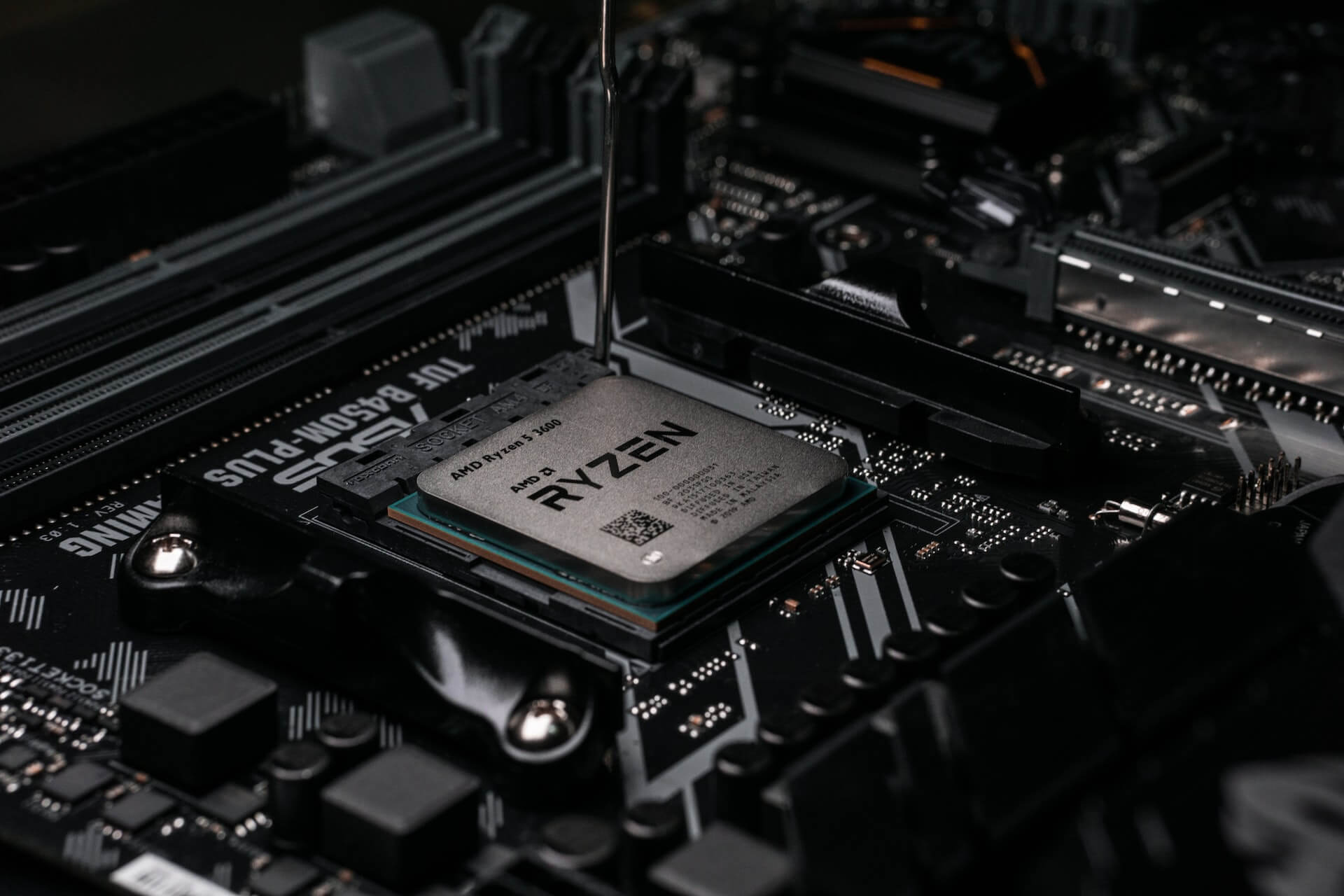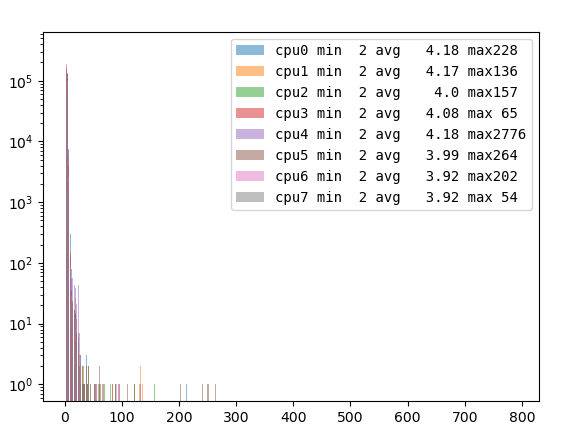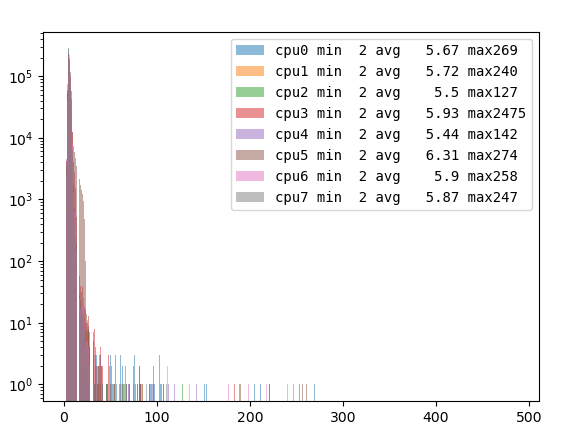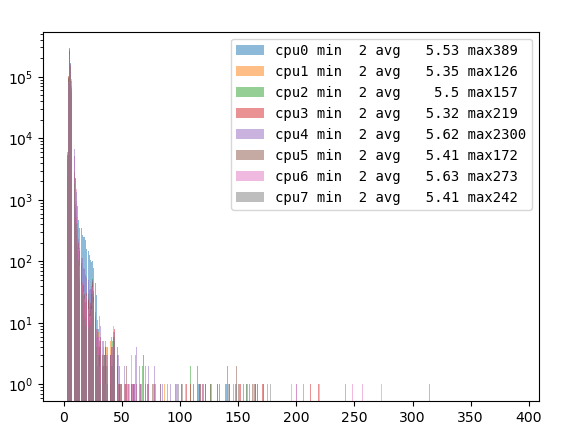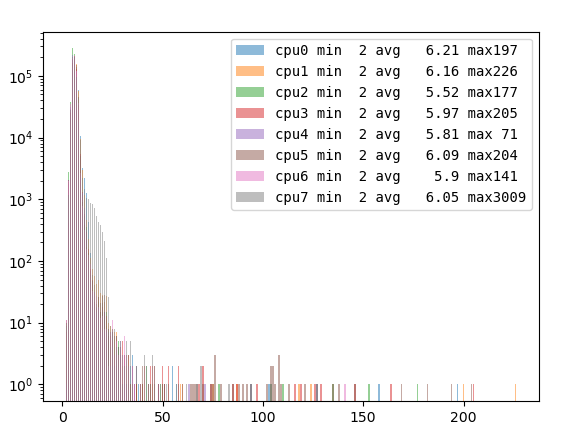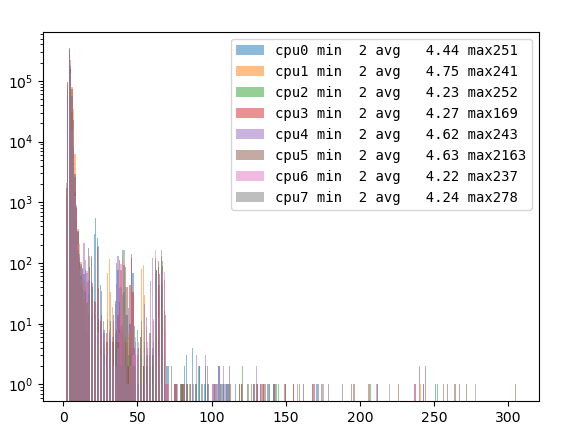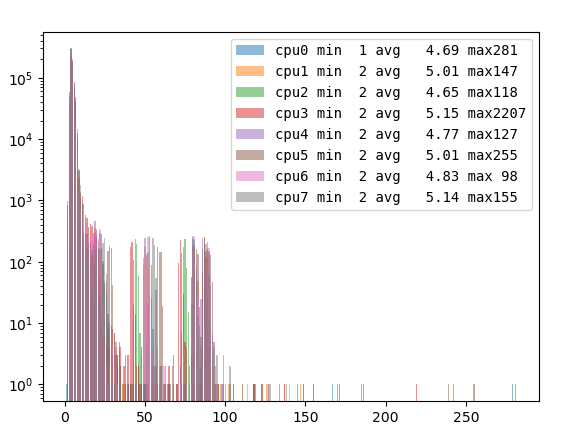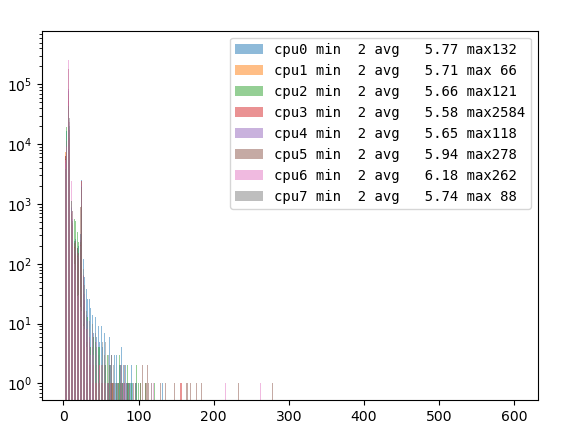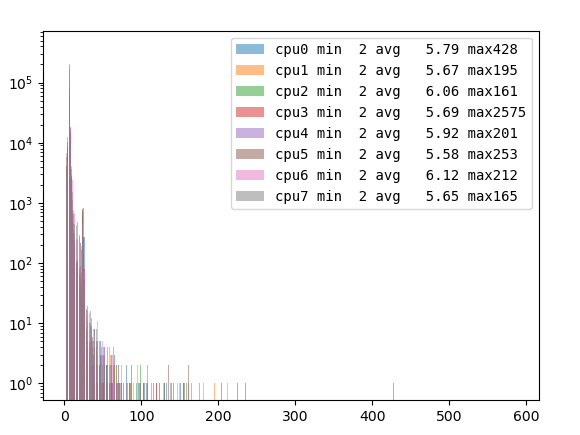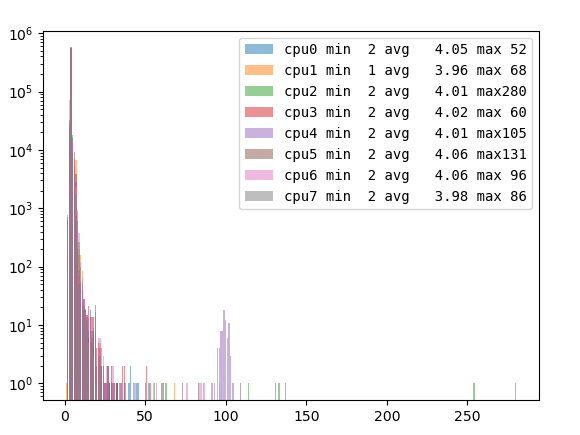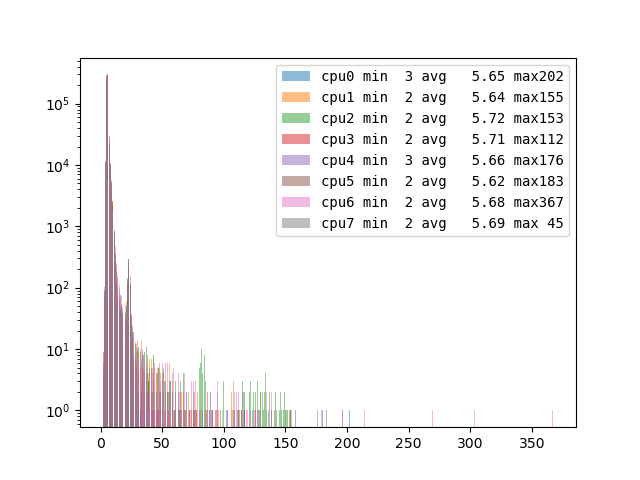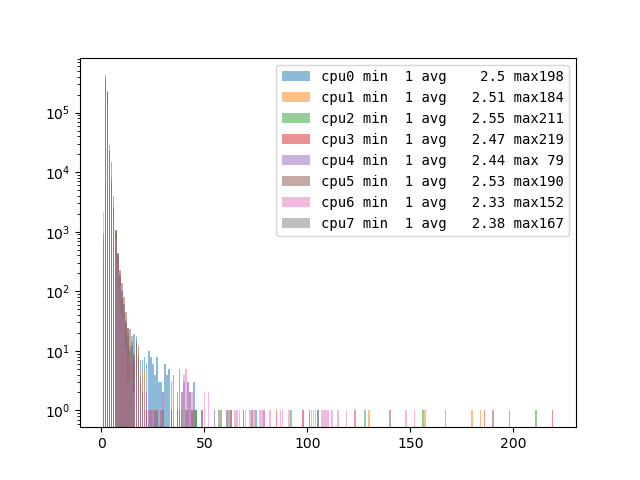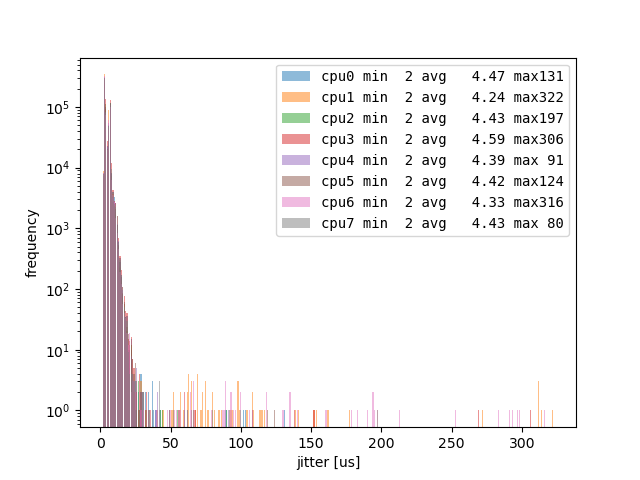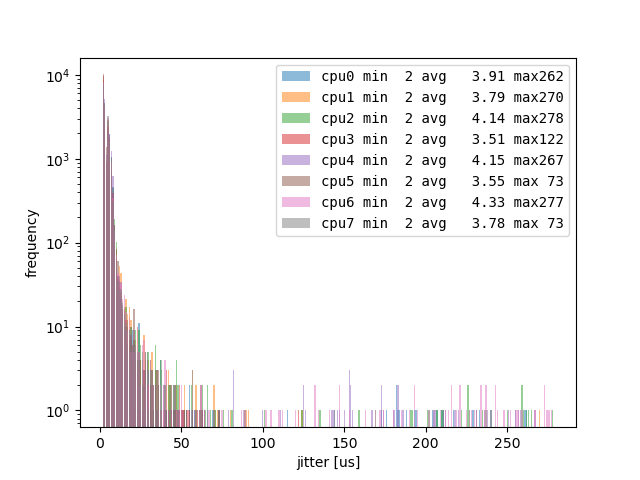Linux CPU 调度器之我见
Photo by Luis Gonzalez on Unsplash
最后更新时间:Sat Jun 8 04:10:49 PM CST 2024
前言
对于各种 CPU 调度器,很多人的看法和得到的反馈不一样。有的人想要“压榨”CPU 的性能,将其发挥到极致,他们通常会因为某个调度器带来的一点点性能提升而高兴;有的人真实的感受到了在高负载环境下系统的响应能力提升;有的人对此嗤之以鼻;有的人无所谓这点性能或响应能力;有的人在不同调度器上得到了负优化。
下面这些是我目前了解到的 CPU 调度器。BFS 和 MuQSS 曾经都是由 Con Kolivas 开发维护,但两者现在都处于无人维护的状态。Baby, CacULE 和 TT 都是由 Hamad Al Marri 开发维护,其中 Baby 是让 CPU 调度器爱好者学习用的,在 CK 宣布放弃维护 MuQSS (截止到 5.12) 后,Hamad 也随后放弃维护 CacULE (截止到 5.14), Peter Jung 接手 CacULE (5.15 - 6.1) 的维护工作 (6.1 后他也不再维护 CacULE),两个月后 Hamad 发布了新的 CPU 调度器——TT, 由于精力有限,他只维护 TT 的 LTS 版本。Bore 是 CFS 和 EEVDF 的增强版,由 mu(Masahito Suzuki) 开发维护。BMQ 和 PDS 现在都属于 Project C, 由 Alfred Chen 开发维护。EEVDF 由 Intel Linux 工程师 Peter Zijlstra 开发维护。
调度器
从 Linux 6.6 开始,EEVDF 合并到主线取代了 CFS, TT 不再维护,Hamad 在 Baby 调度器之上从头开始重新实现了 TT, 名为 ECHO.
- Baby - A very basic and lightweight yet very performant CPU scheduler. Can be used for learning purposes as a base ground CPU scheduler on Linux.
- BFS - BFS (Brain Fuck Scheduler) is a process scheduler designed for the linux kernel as an alternative to the Completely Fair Scheduler.
- BMQ - BMQ (BitMap Queue) is a linux CPU scheduler, inspired By Google’s Zircon.
- Bore - BORE (Burst-Oriented Response Enhancer) is enhanced versions of CFS (Completely Fair Scheduler) and EEVDF (Earliest Eligible Virtual Deadline First) Linux schedulers. Developed with the aim of maintaining these schedulers’ high performance while delivering resilient responsiveness to user input under as versatile load scenario as possible.
- CacULE - The CacULE CPU scheduler is based on interactivity score mechanism. The interactivity score is inspired by the ULE scheduler (FreeBSD scheduler).
-
CFS - CFS (Completely Fair Scheduler) is the new desktop process scheduler implemented in Linux 2.6.23 as a replacement for the previous vanilla scheduler’s SCHED_OTHER interactivity code.
It is the current linux task scheduler. - ECHO - Enhanced CPU Handling Orchestrator, implemented on top of Baby scheduler.
- EEVDF - EEVDF is based on the Earliest Eligible Virtual Deadline First approach. (Initial EEVDF paper). The EEVDF scheduler has been merged for the Linux 6.6 kernel and replaces the existing CFS scheduler.
- MuQSS - Multiple Queue Skiplist Scheduler (MuQSS) is a rewritten implementation of the Brain Fuck Scheduler (BFS) concept.
- PDS - PDS (Priority and Deadline based Skiplist multiple queue scheduler) is a linux CPU scheduler whose design principles are to be a simple CPU process scheduler yet efficient and scalable.
- Sched-ext - sched_ext is a Linux kernel feature which enables implementing kernel thread schedulers in BPF and dynamically loading them. This repository contains various scheduler implementations and support utilities.
- TT - The goal of the Task Type (TT) scheduler is to detect tasks types based on their behaviours and control the scheduling based on their types. Not supported after version 6.6.
(按照字母排序)
这些调度器是否真的对性能或响应有改善呢?
部分调度器测试
系统信息
Operating System: Arch Linux
KDE Plasma Version: 5.26.2
KDE Frameworks Version: 5.99.0
Graphics Platform: X11
Manufacturer: LENOVO
Product Name: 81GY
System Version: Lenovo XiaoXin Air 15IKBR
CPU 信息
Name: Intel Core i5-8250U
Topology: 1 Processor, 4 Cores, 8 Threads
Base Frequency: 3.40 GHz
L1 Instruction Cache: 32.0 KB x 4
L1 Data Cache: 32.0 KB x 4
L2 Cache: 256 KB x 4
L3 Cache: 6.00 MB x 1
内核信息
Arch Linux 默认内核加不同的调度器。
内核版本:6.0.7
测试方法
使用 geekbench v5 对 CPU 进行性能测试。
使用 jitterdebugger 配合 stress-ng 对 CPU 进行响应测试。
性能测试
进行 3 次 geekbench 测试,取平均数。
geekbench
响应测试
用 jitterdebugger 模拟交互任务,用 stress-ng --cpu 24 模拟 CPU 高负载工作环境,测量 10 分钟。
jitterdebugger -D 10m -c 'stress-ng --cpu 24'
将测量的结果生成直方图。
- 纵轴为次数,横轴为时间(μs)
- min: 观察到的最小的唤醒延迟
- max: 观察到的最大的唤醒延迟
- avg: 所有观察到的唤醒延迟的算术平均值
BMQ
geekbench:
平均分:Single-Core: 960.66, Multi-Core: 2934.66
延迟直方图:
Bore
geekbench:
平均分:Single-Core: 958, Multi-Core: 2806.33
延迟直方图:
CacULE
平均分:Single-Core: 959.66, Multi-Core: 2908.33
延迟直方图:
CFS
6.0 CFS 与 5.15 CFS 相比,前者真的得到了改善。
平均分:Single-Core: 959, Multi-Core: 2919
延迟直方图:
PDS
平均分:Single-Core: 959, Multi-Core: 2948.33
延迟直方图:
TT–CFS
这里 TT 使用的是 CFS balancer
平均分:Single-Core: 957, Multi-Core: 2905
延迟直方图:
测量结果分析
从数据上来看:
-
单核性能:BMQ > CacULE > CFS = PDS > Bore > TT–CFS
-
多核性能:PDS > BMQ > CFS > CacULE > TT–CFS > Bore
-
响应能力:BMQ > PDS > TT–CFS > CacULE > Bore > CFS
这里 可以看到 geekbench 所有的测试结果,和更详细的系统信息。
实际使用感受
在高负载的环境下,BMQ 和 TT–CFS 很丝滑(确信这不是心理作用),PDS 会有一些明显的卡顿。另外 3 个则是介于「很丝滑」和「明显卡顿」之间,它们之间实在是没感受都差异。当高负载达到某个程度时,BMQ 会冻结桌面。而吞吐方面,区别不大。
BMQ 在大多数 AMD 设备上很差劲,甚至会导致冻结桌面,但是在一些 intel 设备上表现的很好。Bore 的重点是在高负载环境下提供更低的延迟,有更好的响应,它是在 CFS 上进行了一些修改,吞吐方面与 CFS 几乎一样。BMQ/PDS 大多不适合多任务负载,Bore/TT–CFS 在高负载(编译、渲染)下的体验要比它们好得多。
注:不同的 CPU 调度器在不同的硬件上的表现存在差异。
2022-12-03 更新
在 6.0.11 内核上再次对 Bore, CFS, TT–CFS 进行测试。
测试方法和上面基本相同。
但响应测试加大了负载,改为了:
jitterdebugger -D 10m -c 'stress-ng --cpu-method loop -c 256'
Bore 1.7.3
平均分:Single-Core: 957, Multi-Core: 2949.33
延迟直方图:
CFS
平均分:Single-Core: 957.66, Multi-Core: 2909.33
延迟直方图:
TT–CFS
平均分:Single-Core: 958.66, Multi-Core: 2878.66
延迟直方图:
测量结果
- 单核性能:TT–CFS > CFS > Bore
- 多核性能:Bore > CFS > TT–CFS
- 响应能力:TT–CFS > Bore > CFS
Bore 在最近发布的版本上 ( >= 1.7.x) 做了很多改进,正如它的作者所说,Bore 的吞吐明显有了提高,响应略微高于 CFS,测量结果也验证了这一点。Bore 的单次多核分数达到了 2953 (这是这台机器上目前测量到的最高分数,在上一次测量中 PDS 最高也达到了 2953)。在响应方面 TT 仍然表现最好,它的吞吐量较低也在意料之中。CFS 倒是没有明显的变化。
另外,BMQ 在本次测量响应时冻结了桌面,可能是负载过大造成的。
同样,这里 可以看到 geekbench 所有的测试结果。
2024-03-31 更新
上周,Hamad 的新调度器 ECHO 发布,在 6.8.1 内核上测试了高负载下它和默认调度的延迟。
EEVDF
ECHO
结果还是比较明显。
实际使用感受也很明显,边编译内核边看视频,聊天,逛论坛,EEVDF 有较多的卡顿,会明显感知到后台在跑什么东西。ECHO 丝滑很多,有时候甚至不会感知到后台在编译内核,但是偶尔在启动应用时也会卡顿一下。
目前来说,ECHO 是我用过延迟最低的调度器。
性能尚未测试。
更多关于 ECHO 和其它调度器比较的测试:https://github.com/hamadmarri/benchmarks
2024-06-08 更新
Sched_ext
最近在尝试 sched_ext, 主要在用 scx_rustland, scx_rusty, scx_lavd. 在 6.9.3 的内核上配合 sched_ext-0.1.10.r20.g472ab94-1 测试了高负载下它们的延迟。
scx_rustland
scx_rusty
scx_lavd
使用体验是,scx_rustland 和 scx_rusty 在高负载下都能保持良好的响应,相比之下,scx_lavd 的卡顿、滞后感最明显。
性能尚未测试。
Q&A
下面是节选的一些有参考价值的问答
Q:
Which best scheduler of them?
A:
It’s the same old saying: Test against your workload
Q:
Unexpectedly about the TT. I.e. it’s the best for the desktop right now, but still in the support stage?
A:
Yes, so far possible. The project is from Hamad, so far I understood he is maybe working again on some updates someday.
You cant say the best to anything, it have to suit to your needs, if its cfs, bore,tt,cacule or pds. But so far it showed that TT runs better on older hardware.
Q:
Sorry I am sounding ignorant. If a scheduler is giving better results. Why would someone use the other one? Or is it that every kernel specialises in something?
How do you deem a scheduler to be best for the majority?
A:
Thank you for questioning. I say with my greatest respect to Hamad Al Marri, Alfred Chen, Con Kolivas, Ingo Molnar and other great scheduler developers, BORE is not “the best for any possible use.” In fact, NO scheduler is known to be “always best for anything,” despite all the developers are eagerly trying to create one that is. For some computing demands TT is obviously known to be the best. For some other workloads, BMQ or PDS-mq may work better. Similar that you may find the RT kernel useful to your needs, when some others prefer Voluntary preemption kernel. It is encouraged to find by yourself your best choice. Thank you, and thank you all guys here for sharing the joy.
完。
